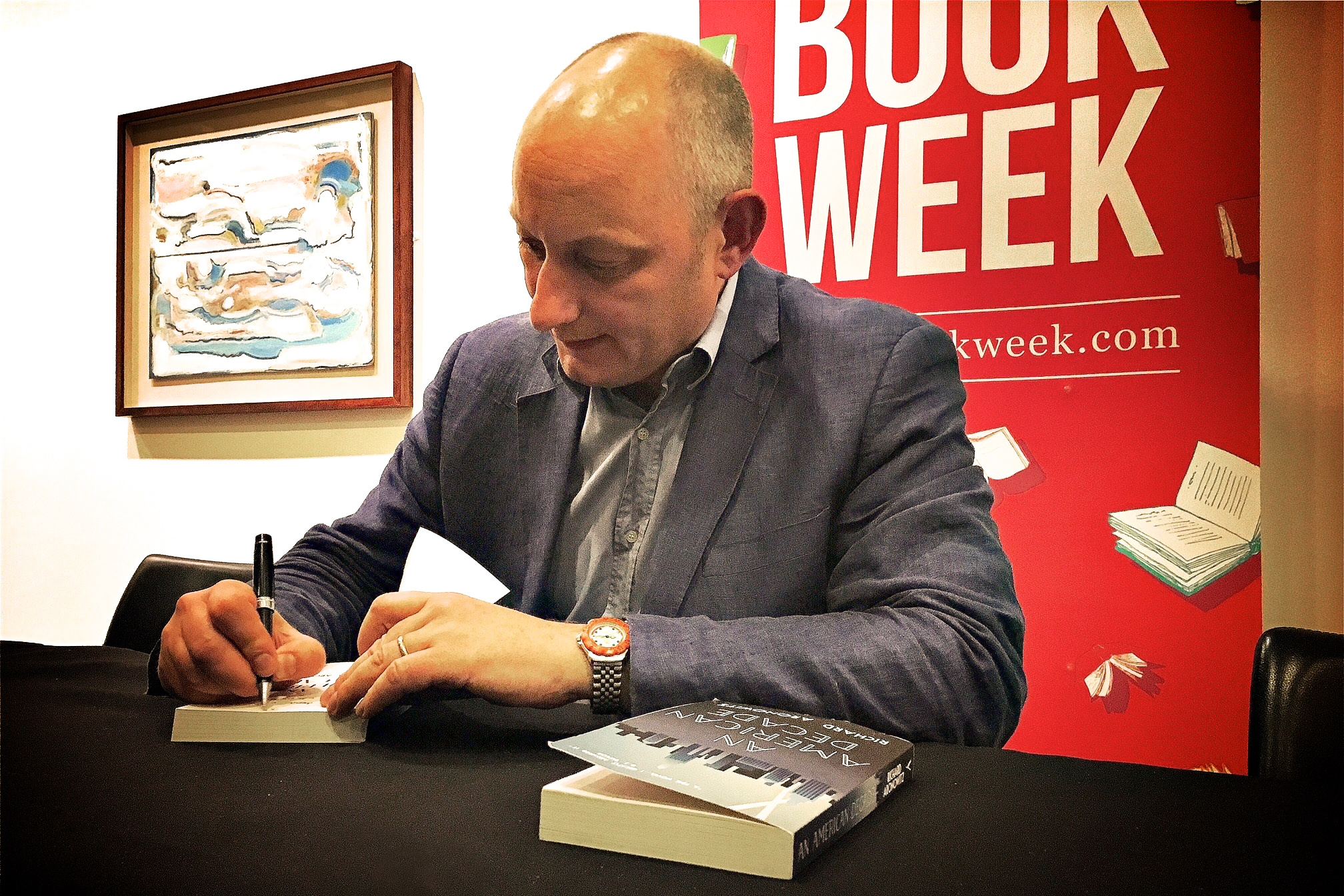

poetry
Subtitle
I began writing poetry at university when I was nineteen. I still remember the incident that sparked that sudden impulse to write: a young man in my college’s Junior Common Room was trying to get some confectionary or drink out of a vending machine.
He put in the money but nothing dropped into the tray, and he slammed his fists hard against the sides of the machine. It wasn't that sound, though, that woke me up; it was what he said, loudly: "I've been Jewed!"
I didn't know what he meant at first, but quickly learned that it was then a still-current northern expression for being cheated out of money. So far, so lovely.
As I said, it sparked something deep in me and the poem that I wrote about that incident was eventually published in the English faculty's poetry magazine. An encouraging start.
My twenties and early thirties were wonderful times in my poetry career: I had poems published in The Independent and The Guardian newspapers, and in the anthology Anvil New Poets 3 (Anvil Press, London, 2001). My poem "New York, Fourth of July" was shortlisted for the prestigious Bridport Prize in 1999.
He put in the money but nothing dropped into the tray, and he slammed his fists hard against the sides of the machine. It wasn't that sound, though, that woke me up; it was what he said, loudly: "I've been Jewed!"
I didn't know what he meant at first, but quickly learned that it was then a still-current northern expression for being cheated out of money. So far, so lovely.
As I said, it sparked something deep in me and the poem that I wrote about that incident was eventually published in the English faculty's poetry magazine. An encouraging start.
My twenties and early thirties were wonderful times in my poetry career: I had poems published in The Independent and The Guardian newspapers, and in the anthology Anvil New Poets 3 (Anvil Press, London, 2001). My poem "New York, Fourth of July" was shortlisted for the prestigious Bridport Prize in 1999.
Debut poetry collection by novelist Richard Aronowitz. He writes passionately about love and the natural world but his work also delves into the darker sides of recent history.
"Aronowitz’s Life Lessons is a book about coming into knowledge. Not so much from reading, but from living close to the natural world, to family and to history. Tied to a conviction that “We are what we have always been”, these thoughtful, well-crafted poems evoke an English pastoral tradition almost as a birthright, except that today the poet escapes, not the tensions of the Elizabethan Court, but the gargantuan features of an industrial economy."
Richard's poems have been shortlisted for the Bridport Prize and the Troubadour International Poetry Prize.
Life Lessons was launched by Palewell Press in April 2019.
"Aronowitz’s Life Lessons is a book about coming into knowledge. Not so much from reading, but from living close to the natural world, to family and to history. Tied to a conviction that “We are what we have always been”, these thoughtful, well-crafted poems evoke an English pastoral tradition almost as a birthright, except that today the poet escapes, not the tensions of the Elizabethan Court, but the gargantuan features of an industrial economy."
Richard's poems have been shortlisted for the Bridport Prize and the Troubadour International Poetry Prize.
Life Lessons was launched by Palewell Press in April 2019.
The Anvil New Poets series has built up a reputation for introducing ground-breaking work from the best new poets. The first two volumes featured the first work published in book form by poets such as Kate Clanchy, Colette Bryce, Alice Oswald, Richard Price and Mimi Khalvati.
For the third in the series, Ironside and Lumsden present ten poets who look set to emulate the acclaim of their predecessors. Picked from the several hundred manuscripts considered over a period of over six months, these are the poets who will be producing the best new collections of the next ten years. This is your chance to read them now. Poets included:
Richard Aronowitz, Ros Barber, Kathryn Gray, Siân Hughes, A.B. Jackson, Tabish Khair, Kona Macphee, Robert Seatter, Julian Turner, Sarah Wardle
For the third in the series, Ironside and Lumsden present ten poets who look set to emulate the acclaim of their predecessors. Picked from the several hundred manuscripts considered over a period of over six months, these are the poets who will be producing the best new collections of the next ten years. This is your chance to read them now. Poets included:
Richard Aronowitz, Ros Barber, Kathryn Gray, Siân Hughes, A.B. Jackson, Tabish Khair, Kona Macphee, Robert Seatter, Julian Turner, Sarah Wardle




